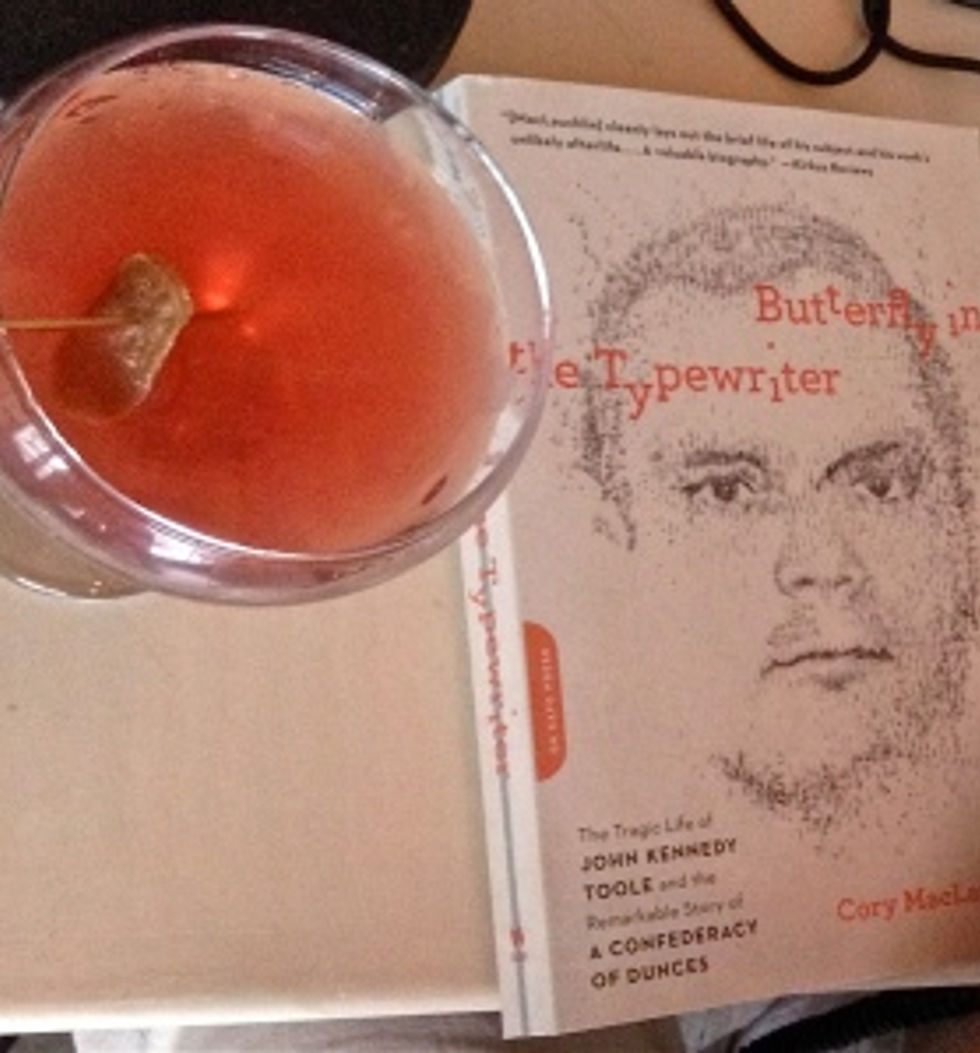A Biographer’s Highest Critic
- cmaclauchlin
- Apr 23, 2012
- 3 min read
When I first started doing research for Butterfly, I was fortunate to have met John Geiser, a tall man with thick gray hair and a distinctly Uptown New Orleans accent–a refined southern drawl, with clear pronunciation, as if every word he said was deliberate. John is a walking encyclopedia of New Orleans history. Every neighborhood, every house of note, he could tell you the story behind it. With the politest of smiles, he is quick to correct anyone who confuses Cajun with Creole or mispronounces the name of his beloved city. It’s not “Nawlins” like a drunk tourist on Bourbon street might say. Every letter should be pronounced, he instructs: New Oorleeans.
John is also deeply connected to the Toole story. He was neighbors with the Tooles growing up. He walked with little Kenny on the first day of school in 1942. And he was there at the end, helping Thelma Toole in the last few years of her life, taking her about town, making photocopies, whatever she needed. After she died, John served as the executor of her estate and was integral in establishing the Toole Papers at Tulane University. We wouldn’t know half as much about Toole today if it were not for John’s stewardship to his friend’s legacy.
Needless to say, he was a rich source for me to draw upon. But because he was so close to the story, and knew Thelma Toole so well, as the release date neared I became nervous about what he would think about my book. I knew he was upset about the first biography and he felt betrayed by those authors he had helped. I had worked hard to gain his trust. Still, I worried John might not like some of the things I wrote, particularly about Thelma.
Perhaps my anxiety over his response created some sort of subconscious avoidance behavior leading up to the release date. While I would normally touch base with John before coming to New Orleans, I failed to contact him to tell him about the readings and the documentary screening. I sent out a mass email invitation to friends. But John is a renaissance man who exists without the intrusions of a computer or a television. And giving him the customary phone call he so deserved just slipped my mind.
When I arrived at The Garden District Book Shop for my first reading I immediately thought of John. A Confederacy of Dunces was first released at this shop and John was there for that occasion. His house was a few blocks away. But it was too late to call now, I resolved.
As the chairs were being set up and wine and crackers set out for guests, I wandered around the store, enjoying the unique treasures of an independent bookshop. I turned the corner of an aisle, and there I saw John. He was smiling and holding my book in his hand. I will never forget what he said to me, “Cory, you did it. You got it right. It’s just beautiful.”
“You already read it?” I asked. He told me he walked into the bookstore a few days earlier and saw Butterfly on display, excitedly picked it up, started to read it and walked out without paying. John is known well enough in the neighborhood to get away with that. He returned the next day to pay for the book.
That evening I talked about the life of Toole on the anniversary of his death and saw John smiling with approval. It was a wonderful feeling. And as people asked questions, it felt as if something was being righted in this little corner of the world. We were speaking of Toole, the writer, with the respect and honor he deserves.
After the reading John invited me out to eat, along with two other friends. We talked more about New Orleans and Thelma and Ken. And after a delicious meal we strolled back to the car, enjoying the views into the regal homes of the Garden District. We carefully stepped over bricks upturned by the roots of the ancient trees towering above us as the evening wind rustled the leaves. It was a perfect New Orleans night, one that seemed like a dream to me after so many years of researching and writing.
In the days that followed I heard from more of Toole’s friends. They felt, as John told me, I got it right.
I have enjoyed reading the official reviews over the past few weeks, but I must admit, praise from people who knew Toole is the highest praise I could receive. Afterall, I had them in mind through the whole process.
When I first started writing the book, long before I had an agent, an editor, or even a title, I wrote down three questions that became my guideposts:
1. Is this the biography of Toole that I wanted to read but could not find: engaging, honest, balanced, fair and grounded in research?
2. Will Toole’s friends recognize him in this depiction of his life?
3. Would Toole recognize himself in this book if he were alive to read it?
That third question is nearly impossible to answer of course, but I held it close to me as I wrote.
And on the night Butterfly in the Typewriter was released, I strolled through Toole’s Uptown neighborhood with his old friend. And for the first time I thought to myself, yes, Ken would approve.



Comments